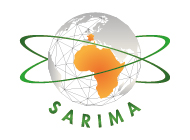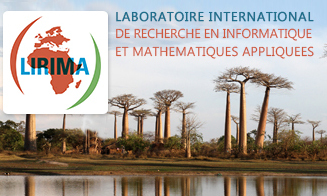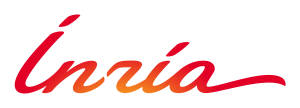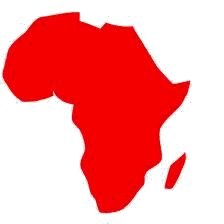CARI (The African Conference for the Research in Computer Science and Applied Mathematics)

The African Conference for the Research in Computer Science and Applied Mathematics (CARI) is held every two years and brings together African and international researchers working in computer science and applied mathematics. Set up by Inria, the University of Yaoundé I, and the United Nations University in 1992, it is supported by other French partners, such as Cirad and IRD, and international organisations including the Agence Universitaire de la Francophonie (AUF), and the ICPAM (International Centre for Pure and Applied Mathematics).
The CARI has rapidly evolved beyond the restrictive framework of a conventional symposium to become a valuable tool for development and high-level training, supported by a strong scientific and financial partnership between French research centres and international organisations. Thus, the permanent committee, made up of a panel of African researchers and a panel of representatives from partner organisations, has initially developed other activities, such as schools, the award of post-doctoral grants, assistance with cooperative projects between African universities. The experience and network developed through the CARI have been vital in the development of Sarima and the creation of ARIMA Journal and LIRIMA.
ARIMA Journal

The ARIMA Journal is a result of scientific cooperation between Africa and Northen countries which has been under development since more than twenty years, in the framework of the CARI activities. Its principal goal is to become a channel for disseminating the results of this cooperation. The scientific area includes all research topics in Computer Science and Applied Mathematics.
Scientists working in the mentioned themes are welcomed to submit papers. However, particular encouragement is directed to authors that can present results coming from collaboration between Africa and Northern countries or results that were entirely obtained in Africa.
Submitted articles must describe novel research results. Articles focusing on application of existing tools will also be considered for publication as long as they bring new insight on a special domain arising in application problems.
The promoters of scientific events in Africa are encouraged to submit a special issue of ARIMA Journal dedicated the extended versions of selected papers of this conference or workshop. Proposals of thematic issues are also welcome.
ARIMA Journal is indexed by MathSciNet. In 2016 it migrated to the Overlay Journal platform Episcience.
SARIMA

SARIMA started as a Priority Solidarity Fund project of the French Ministry for Foreign and European Affairs initiated by Inria and ICPAM (International Centre for Pure and Applied Mathematics). It was run by a Scientific Interest Group (French model of an Association for the Advancement of Science), the GIS SARIMA. Active from 2004 to 2008, it relied heavily on the knowledge of the CARI network, and aimed to achieve sustainable consolidation of scientific capabilities in computer science and applied mathematics in Africa. The programme was a great success.
In an effort to match the success of FSP SARIMA Inria still plays an active role in GIS SARIMA, which comprises about 20 academic partners and now focuses on supporting research activities in mathematics and computer science in Sub-Saharian Africa.
LIRIMA

LIRIMA is the Inria International Lab. (IIL) in Africa with headquarters at Tunis (previously in Yaounde, Cameroon then in Saint-Louis, Sengal). It gathers african teams (with their Inria partners) selected from Inria Associated teams program. The aims of this international research laboratory are to:
- Promote high-level scientific output in the fields of computer science and applied mathematics, in relation to the issues of economic and social development, thanks to an active and structured partnership between its members, by means of Franco-African research teams and synergies between African teams.
- Encourage structured cooperation at a doctoral and post-doctoral level, specifically by promoting the joint supervision of theses, as well as by organising regional doctoral schools.
- Structure and unify scientific relations between african researchers and their colleagues from northen countries by providing an official framework for meetings, discussions, and work.
- Promote the practice of scientific evaluation and the dissemination of scientific and technical information within the involved communities.
- Support and strengthen North-South and South-South research projects by providing structure for existing networks and by opening them up to other French- and English-speaking partners; and by easing access to European projects.
ASDS

The African Society in Digital Sciences is a scholarly society, with headquaters in Dschang University in Cameroon, dedicated to the promotion of research and education in Computer science and Applied mathematics in Africa with a support of the international community, in particular the african diaspora. It is an autonomous, non-political, and non-profit organization, independent of state institutions and established by scientists from Africa and the rest of the world. The association adheres to a number of values: access to digital resources for all, open and reproductible science, frugal digital science, ethics and scientific integrity, scientific excellence, equal opportunity for women and minorities, balanced and fruitful South-North and south-South partnerships.

